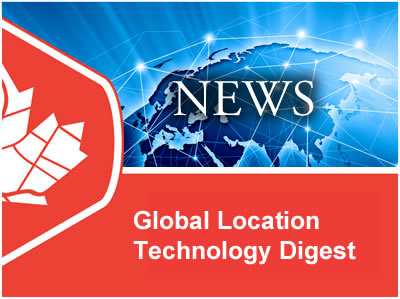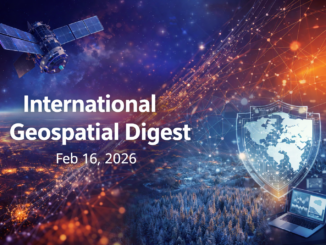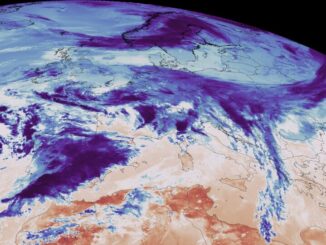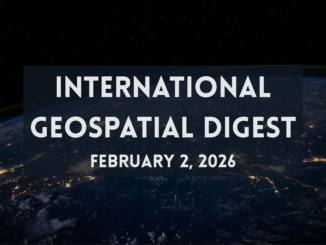
A federal act to streamline geospatial data
The USA recently passed Geospatial Data Act is expected to streamline federal government data purchases. Written to prevent duplicative data purchases by federal agencies and modernize the collection of that data, the act should ultimately save taxpayer money by removing obsolete or redundant data collection. When federal agencies acquire valuable geospatial data, different agencies often gather duplicative information. The act is supported by national associations like American Association of Geographers, Cartography and Geographic Information Society, and the GIS Certification Institute.
The era of the geospatial cloud

Computing and cloud technology is transforming how end users work. By leveraging huge cloud computing resources, users can access and share huge amounts of data, creating new opportunities for collaboration. Geospatial applications in particular stand to benefit from the cloud environment: web services, elastic computing, and new data storage capabilities are enabling wider sharing of geo-referenced data; the geospatial cloud is making a new world of geospatial visualization open to governments, industries, and businesses. This is GIS done on a whole new level.
In security terms, geospatial refers to WHAT happened, WHERE
Geospatial data is a powerful tool for security applications, and it’s increasingly important for security professionals to understand GIS as it pertains to surveillance. A geospatial surveillance system relies on location data for primary display, threat analysis, and sensor control, and provides a high degree of situational awareness. The advantage of situational awareness is a frame of reference that communicates detailed information. Geospatial systems allow personnel to view current security events over a graphical user interface and get up-to-the-minute data from the scene. “Everything happens somewhere”, and thanks to geospatial sensors, track fusion, automated responses, and forensics, the ‘somewhere’ is now at the fingertips of those who can use data to respond to security breaches.
Blockchain in the big city

How can blockchain use data to make smart cities even smarter? Cities use data to understand the needs of citizens, optimize public spaces, and improve operations. Whereas before urban planners were forced to make educated guesses as to the placement of various amenities, data is now the primary tool in decision making. Blockchain helps multiple parties interact cooperatively with big data. This allows information—like the purchase of a metro ride with a smartphone—to be shared seamlessly with transit authorities, cellular providers, credit card companies and the user themselves, and all without putting the personal data at risk.
DigitalGlobe, SPIRE, & Planet awarded NSA contract to evaluate Small Satellites
NASA has just launched a pilot program to evaluate how commercial small-satellite constellations could supplement the observations of Earth science missions with Earth science data. To this effect, the Earth Science Division of NASA awarded sole-source contracts to acquire test data sets from three organizations for the “Private Sector Small Constellation Satellite Data Product Pilot”. The private sector organizations to receive contracts (each including an option for NASA to extend the agreement for an additional four years for a value of up to $7 million) were DigitalGlobe (a Maxar Technologies company), Planet, and SPIRE. The test data products will be examined to determine whether the data will advance the agency’s science and development goals.




Be the first to comment